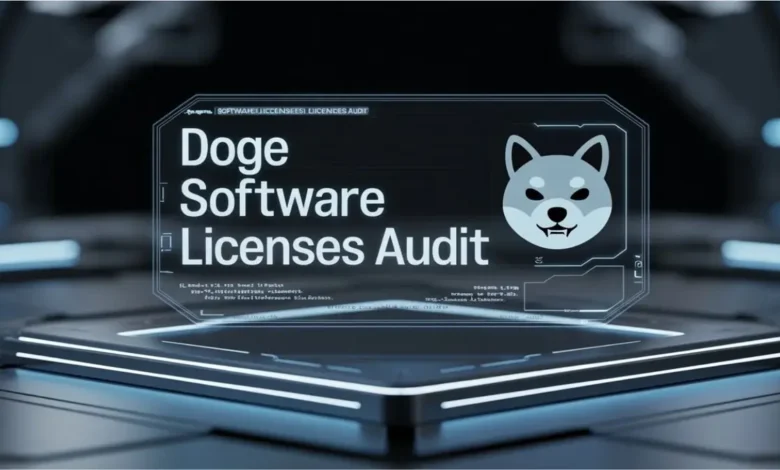Understanding Doge Software Licenses Audit HUD

Doge Software Licenses Audit HUD: In today’s digital first landscape, the need for transparent software licensing and effective audit mechanisms has never been more vital. When we bring Doge software licenses audit HUD into the conversation, we’re diving into a uniquely modern and tech centric topic that merges compliance, technology governance, and user facing tools. It’s more than just a bunch of complicated terms it’s the intersection of open source freedom, license responsibility, and heads up display innovation.
At its core, Doge software licenses audit HUD isn’t just about monitoring codebases for license violations or ensuring developers tick the right boxes. It’s a full scale framework that balances visibility, accountability, and real time auditing. Whether you’re a developer who’s knee deep in repositories or a compliance officer trying to make sense of software documentation, understanding how the Doge license structure and audit HUD work is a huge step forward. It’s also about more than just keeping legal teams happy this concept protects innovation while making sure that boundaries aren’t crossed in the software ecosystem.
What Exactly Is Doge Software and Why Are Licenses a Big Deal?
When people hear “Doge software,” their minds might wander to memes or blockchain references. However, in this context, Doge software is a robust and growing suite of tools that draws inspiration from the open source ethos. It’s built on transparency, decentralization, and agile development. However, with great openness comes great responsibility this is where licenses play a crucial role.
Software licenses govern how code can be used, modified, and distributed. With Doge software licenses audit HUD, we’re looking at how these licenses are not only tracked but visualized in real time. Doge software embraces both permissive licenses, like MIT or Apache, and more restrictive options like GPL. This variety opens up powerful options for development, but also adds layers of complexity when it comes to compliance.
Developers often unintentionally violate licenses by combining incompatible components. That’s why auditing these licenses isn’t just a bureaucratic exercise it’s a crucial step in maintaining legal, ethical, and scalable operations. This is especially true when the software is used commercially or redistributed. The Doge audit HUD is designed to help decode this complexity visually and interactively, giving stakeholders a quick grasp of what’s under the hood.
The Evolution of Audit Tools in Open Source Ecosystems
Auditing used to be a once a quarter ordeal involving long spreadsheets, clunky reporting tools, and lots of manual checks. Thankfully, technology has caught up. The Doge software licenses audit HUD, which stands at the frontier of this evolution, offering a dynamic interface that adapts as codebases shift and grow.
Audit tools today aren’t just about scanning repositories for blacklisted licenses. They are about context. The Doge audit HUD brings in data visualization, dynamic alerts, compatibility analysis, and historical tracking. This real time auditing capability is a game changer for DevSecOps pipelines. It means decisions are made based on live data, not outdated snapshots.
The HUD (heads up display) aspect of the Doge audit system gives engineers an immediate, glanceable summary of license statuses, compliance levels, and potential violations. Instead of hiding this critical information deep in documentation, it’s presented where the action happens within development environments, dashboards, and CI/CD workflows.
Why the HUD Interface Sets Doge Audit Systems Apart
Traditional license audits feel detached and abstract. What makes the Doge software licenses audit HUD so unique is its seamless integration into the day to day tools developers already use. The HUD acts like a co pilot, offering helpful hints, live updates, and contextual feedback based on the licenses used in a given project.
Visual feedback changes the game. It turns license compliance from a static checklist into a fluid, responsive system. With a Doge audit HUD, color coded alerts might flag incompatible licenses, while green indicators signal clean, compliant code. It empowers teams to course correct immediately, instead of after release cycles.
This not only improves compliance but also boosts development velocity. Nobody likes last minute license surprises. The HUD keeps these issues in sight from the get go, ensuring that software projects align with both legal standards and business goals. It builds confidence across teams developers, legal counsel, product managers everyone gets the clarity they need.

Compliance Is Not Optional Anymore
In the world of enterprise software, compliance used to be an afterthought. But with the proliferation of open-source code, growing privacy laws, and legal risks tied to software distribution, it’s now a front-and-center concern. That’s exactly why Doge software licenses audit HUD is getting so much attention.
Falling short on license compliance can lead to legal actions, costly reworks, or worse, damage to a company’s reputation. The Doge audit HUD system acts as a safeguard against these risks by building a culture of transparency and due diligence. It ensures that organizations don’t just hope for compliance they live it.
The HUD approach is particularly valuable for agile and DevOps teams. These teams move fast, deploy continuously, and integrate from multiple sources. Without real-time auditing, these environments become a compliance minefield. Doge software licenses audit HUD offers a smart, integrated way to track every component and its licensing status before it becomes a liability.
How Doge Software Promotes Ethical Development
Ethical software development isn’t just about what you build it’s also about how you build it. By integrating robust license audit tools into the development process, Doge software encourages ethical choices from the ground up. Developers are no longer in the dark about what’s allowed or not allowed in their codebases.
This approach fosters accountability. When the audit HUD alerts you that a certain dependency violates a GPL condition, you’re not just fixing a bug you’re preserving the integrity of your product. And when organizations embed this awareness into their culture, they raise the bar for responsible innovation across the board.
The Doge software licenses audit HUD contributes to a larger movement within the tech industry one where open-source respect, license compliance, and transparency are baked into every line of code. It’s not just about avoiding lawsuits it’s about doing things the right way.